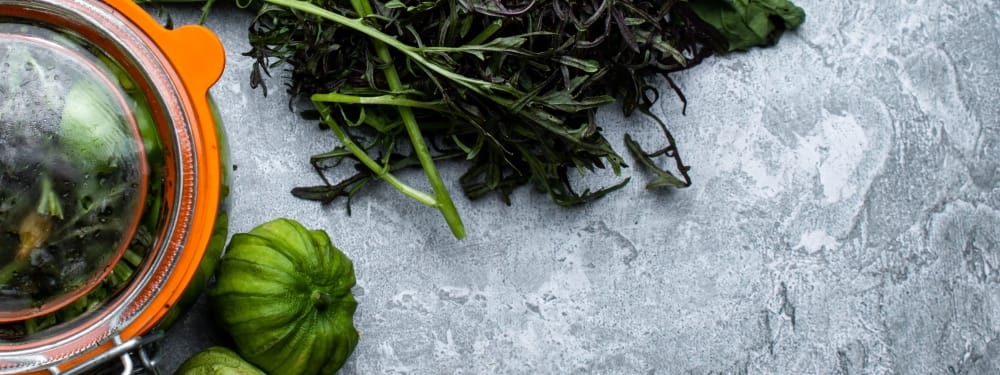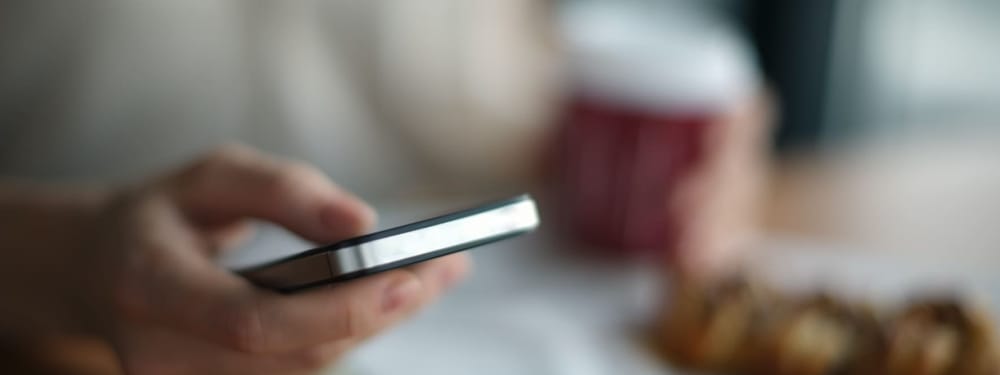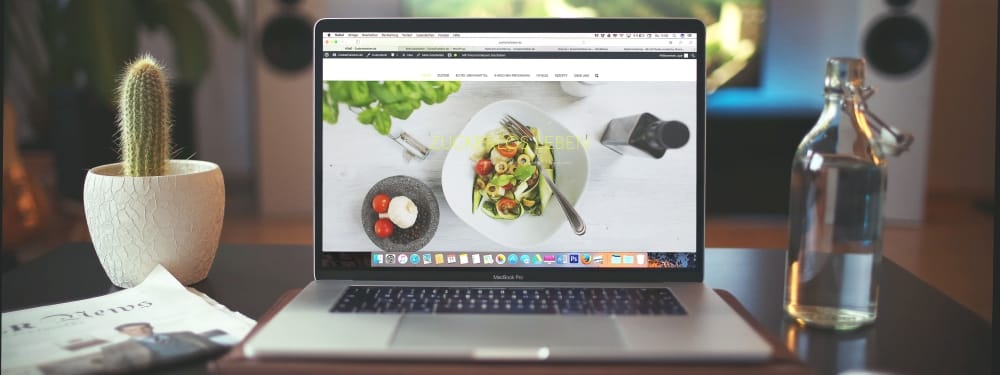With our diary entries from the future, we want to create concrete images in our minds. Our assumptions are based on our Future Food Trend Radar. In it, we show the currently most important trends in the areas of food, packaging, kitchen and production from our point of view. Here you will find plenty of inspiration for the food world of today, tomorrow and the day after tomorrow.
June 24, 2040.
A guest contribution by Daniel Anthes
Tuesday morning, June 24, 2040. You wake up and immediately have the fine scent of freshly brewed coffee in your nose. Normally you drink tea, but today you have an important lecture coming up, and you always make an exception for big gigs. Of course, your kitchen knows this, too, as it was the first to hear about the big day when it was linked to your Google Calendar in real time.
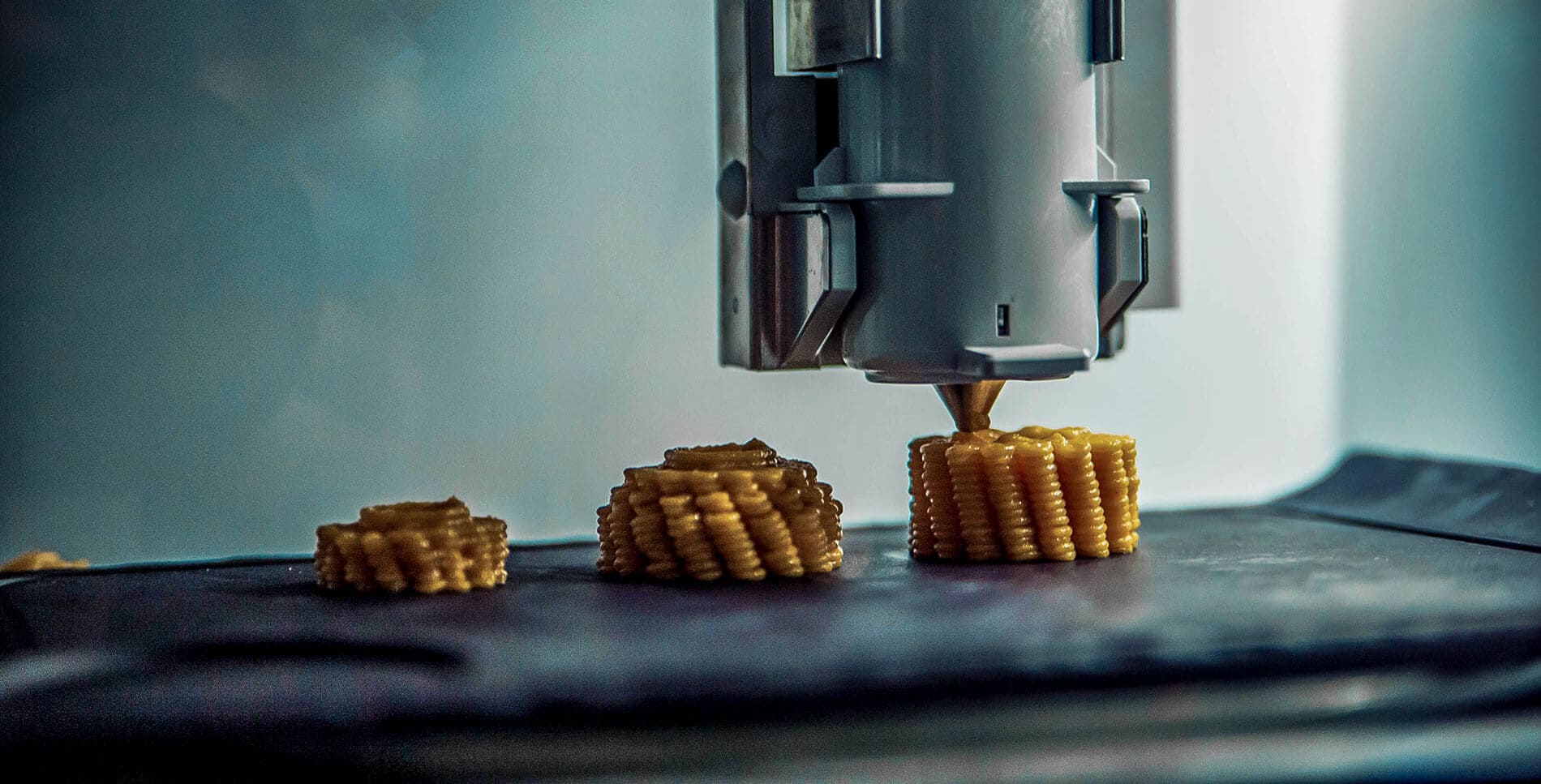
The porridge comes from the 3D printer, which, thanks to your smartwatch, has your current vital data at its disposal and links it to a nutritionally optimized recipe, turning the oatmeal treat into a health booster. It goes without saying that the basic raw materials required for this, such as oat flakes, nuts, dried fruit, etc., are already processed for the 3D printer and delivered to your home every week in the form of a subscription box. But you don’t notice that much, because after all – thanks to technology – everything runs autonomously.
However, if you wanted to, you could get all sorts of information via smartphone or tablet about the food’s origin, processing, quality, certifications, and packaging, because it’s stored on an independent blockchain in a completely transparent manner and is continuously verified by third parties. This is precisely why food scandals have long been a thing of the past, because both producers and retailers and all other companies active in the food industry have had to bow to the evolution of consumers into prosumers and the associated need for transparency and henceforth communicate more authentically and honestly. And those who did not focus on sustainability, fairness and animal welfare disappeared from the market within a short time. The food industry as a whole has therefore also become properly politicized, turning food from a pure lifestyle issue into a political issue: Ecological and social issues are increasingly resonating with every bite or sip, without neglecting enjoyment. The era of hedonistic sustainability and ethical aesthetics has long since begun.
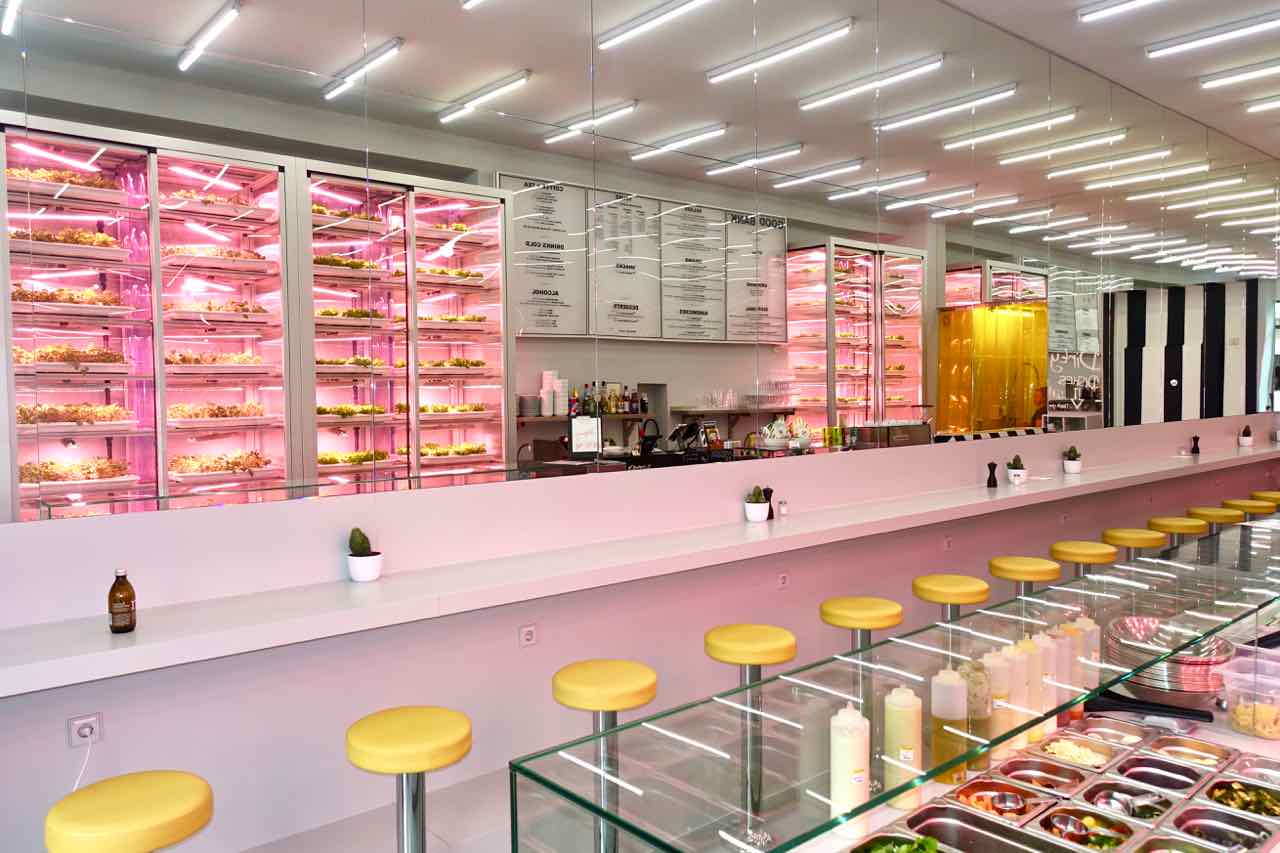
That’s exactly why you arranged to have a business lunch with an old buddy before your presentation after arriving at the destination station of the event location. You’ll want to check out a new vertical farming bistro where mensch can watch the ingredients for the Salad Bowl grow. That’s because lettuce, herbs and some vegetables are grown here in vertical farming and aquaponics systems directly behind the counter and in the bistro on the top floor. For the side dish, you’re not opting for the (real) perch today, but the soy-based tuna substitute. After all, the soy, the central raw material, comes from the region, just about 60 kilometers away. After the plant-based food boom a few years ago and various scandals about monocultures in China and Latin America, the voices for regional production of plant-based raw materials became louder and louder, and domestic food producers responded with new partnerships with regional producers. After all, this is a rather positive consequence of climate change and warmer temperatures in Germany.
Saturated and fortified, you will go to the event location, where you will deliver your presentation a few moments later. Just before the train ride back, you go to the fully automated mini-market next to the station to buy a drink and a snack. Where “shopping” means you just walk into the store, grab a smoothie and energy bar, and run straight to the track; your phone and mini-mart sensors handled the payment entirely without your attention. During the train ride, there are still a few emails on the to-do list, to which you treat yourself to a double grain-based espresso from the board bistro. Once you’re home, it’s a quick trip home to pick up your weekly box of vegetables from the local SoLaWi from the block’s own package station and bring it back to your apartment and put it away.
For dinner, you meet with your partner to celebrate your anniversary in a star restaurant. The first two little greetings from the kitchen included a brief technology-assisted review of the beginnings of your relationship. By means of VR glasses, the culinary experience was once again emotionally charged and thus intensified. How? Through the VR glasses, you saw photos and videos of your first dates and vacations, including the Tuscany trip from a year and a half ago. In addition, olfactory sensors on the glasses helped to transport you to Montepulciano via scents and the greeting from the kitchen reinterpreted the truffle lasagna of yesteryear. The following courses of the menu were less individual, but no less exciting. Also, the rest took place completely analog and without technology, but who needs VR glasses when sitting at the Chef’s Table?
Frankfurt am Main, June 24, 2040
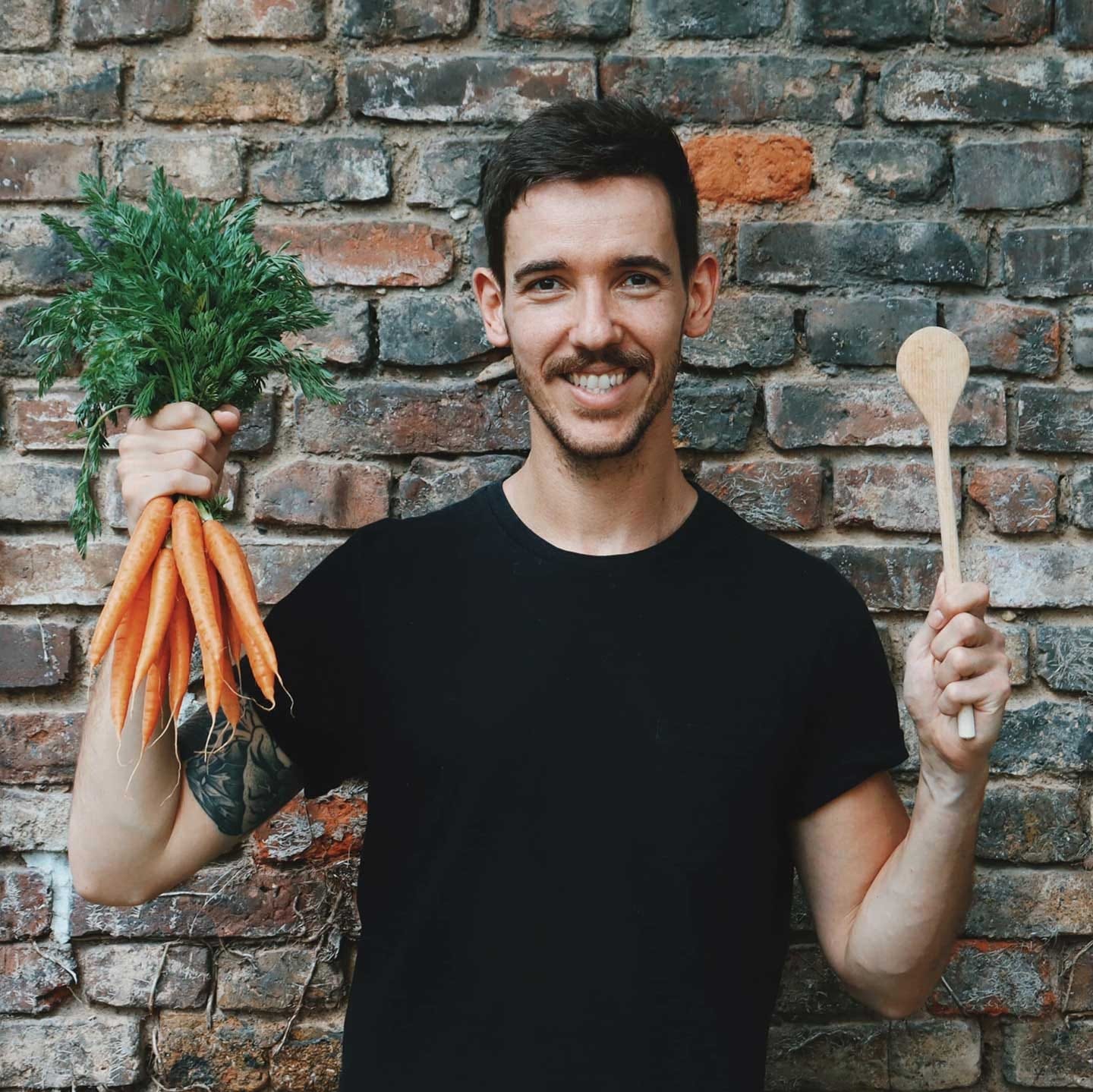
Daniel Anthes, born in 1986 and a graduate economic geographer, business economist and publicist, is particularly concerned with the topics of social change, nutrition & food culture and sustainability. The passionate speaker and author regularly walks the talk and, as an association board member and foodpreneur, also makes a very practical contribution to the sustainable transformation of the food industry. He also works as a senior associate for the renowned Zukunftsinstitut.
Click here to go to Daniel’s website: www.danielanthes.com

